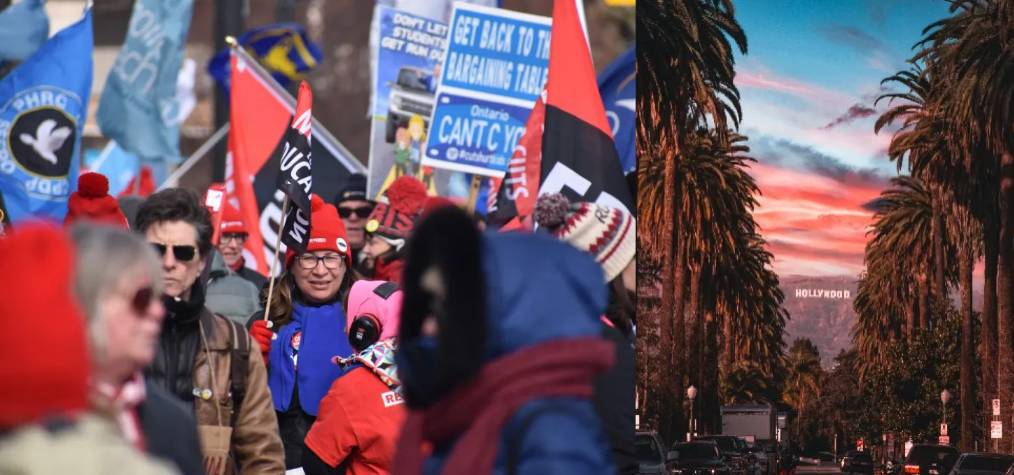Hollywood Strike Crosses 100-Day Threshold: Writers Condemn the 'Milestone of Shame' in Creative Compensation Battle
2 min read
10 Aug 2025
The Hollywood strike, now in its 100th day, continues to cast a shadow over the entertainment industry, prompting an impassioned response from writers who are rallying against what they deem a "milestone of shame." As the standoff between writers and industry stakeholders persists, the strike brings to the forefront complex discussions surrounding workers' rights, creative compensation, and the power dynamics inherent in Hollywood.
The 100-day mark of the Hollywood strike underscores the depth of the disagreements between writers and the industry, reflecting the challenges inherent in balancing artistic expression and economic realities. The strike, initiated by writers advocating for fair compensation, better working conditions, and an equitable share of the profits generated by their creative endeavors, shines a light on the multifaceted nature of the entertainment business.
Writers are the backbone of the entertainment industry, responsible for crafting the narratives that captivate audiences on screens both big and small. Their contributions, while vital, have historically been the subject of contention when it comes to compensation and recognition. The strike serves as a collective pushback against a system that has sometimes left writers undervalued and underpaid.

The writers' rallying cry against the "milestone of shame" emphasizes their frustration with the industry's unwillingness to address their demands. The strike has disrupted production schedules, impacting the release of films and TV shows and causing ripple effects throughout the entertainment ecosystem. It's a stark reminder of the power held by those whose creativity fuels the industry's success.
At the heart of the strike lies the broader issue of labor rights within the entertainment business. As the industry continues to evolve in the digital age, questions about fair compensation for online streaming, digital distribution, and other emerging platforms have come to the forefront. The strike's duration highlights the complexity of finding common ground in a rapidly changing landscape.
The impact of the strike extends beyond the immediate negotiations. The entertainment industry is a significant economic force, employing a vast array of professionals both on and off-screen. The disruption caused by the strike has ripple effects on various sectors, from production crews and set designers to caterers and marketing teams. The strike's duration brings into sharp focus the interconnected web of individuals whose livelihoods depend on the industry's stability.
The strike also emphasizes the role of solidarity within the entertainment industry. As writers stand united in their demands, they demonstrate the power of collective action and the potential to effect change through unity. Such instances highlight the broader potential for workers within the industry to come together to address systemic issues that impact their lives and well-being.
Hollywood strikes have a history of shaping the entertainment landscape and influencing broader conversations. The impact of past strikes is still evident in the way contracts are negotiated, residuals are calculated, and labor agreements are structured. The current strike will likely leave its own imprint, potentially leading to changes in the way writers are compensated in an industry undergoing rapid transformation.
The duration of the strike and the writers' unwavering commitment to their cause underscores the complexity of negotiations within the entertainment industry. Balancing the creative aspirations of artists with the financial realities of the business presents a challenge that requires a delicate equilibrium. The strike serves as a reminder that these negotiations are not just about contracts—they are about the fundamental value placed on the labor and creativity that fuel Hollywood's success.
In conclusion, the Hollywood strike reaching its 100-day mark spotlights the determination of writers to stand up for their rights and fair compensation. The strike's longevity speaks to the complexities inherent in negotiations within the entertainment industry, as well as the broader discussions surrounding workers' rights and creative compensation. As writers continue to voice their demands, the industry faces a reckoning with its power dynamics and the value it places on the contributions of those who shape its narratives.


